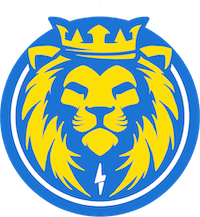
Nutrition and Ozempic: Eating Right While Taking GLP-1 Drugs in Scottsdale
Ozempic and other GLP-1 (glucagon-like peptide-1) drugs have emerged as powerful tools for those in North Scottsdale and surrounding areas looking to manage type 2 diabetes and achieve significant weight loss. However, as these medications reduce appetite and lead to weight loss, it's critical to ensure that proper nutrition is not overlooked. While these drugs can help with calorie reduction, balanced nutrition is essential for maintaining muscle mass, keeping energy levels stable, and promoting long-term health through personalized personal fitness approaches.
In this article, we'll explore the role of nutrition while taking Ozempic or other GLP-1 medications in the Scottsdale area and why it's crucial to focus on quality, not just quantity, of food.
The Role of Nutrition While Using Ozempic
Ozempic works by reducing appetite and slowing gastric emptying, which makes you feel full longer and helps you consume fewer calories. While this reduction in appetite can support weight loss for residents of Paradise Valley and Cave Creek, it also carries the risk of nutrient deficiencies and muscle loss if you're not mindful about what you eat. Here's why nutrition plays a key role while taking Ozempic:
1. Preventing Muscle Loss with Adequate Protein Intake
One of the biggest risks during any weight loss journey, including with Ozempic, is the potential for muscle loss. Your body needs enough protein to repair and build muscle tissue, especially when you're in a calorie deficit. Without sufficient protein, your body may start breaking down muscle to meet its energy needs, leading to a loss of lean body mass.
To maintain muscle mass, aim to consume 0.8 to 1 gram of protein per pound of body weight each day. Protein-rich foods like lean meats, fish, eggs, beans, and plant-based proteins should be central to your meals. This will help support your muscles as you lose weight, ensuring that you're shedding fat rather than muscle, which is crucial for those engaged in small group fitness or personal training programs.
2. Balanced Macronutrients for Sustained Energy
While Ozempic may reduce your overall calorie intake, it's essential to ensure that the calories you do consume are balanced and nutrient-dense. A balanced diet should include:
- Protein: To preserve muscle mass during personal fitness routines.
- Healthy fats: For brain health, hormone regulation, and sustained energy.
- Complex carbohydrates: For steady energy levels, especially if you're incorporating strength training into your routine.
Rather than focusing on cutting calories, focus on the quality of the calories you're eating. Nutrient-dense foods like vegetables, whole grains, lean proteins, and healthy fats will keep you full and energized while providing the essential nutrients your body needs.
3. Micronutrients for Overall Health
While macronutrients like protein, fats, and carbohydrates are important, don't forget about micronutrients—the vitamins and minerals that your body needs to function properly. Nutrient deficiencies can become a problem if you're not eating enough or if your diet lacks variety. Key nutrients to pay attention to include:
- Calcium and Vitamin D: Important for bone health, especially if you're losing weight quickly.
- Magnesium: Essential for muscle function and energy production.
- B vitamins: Important for energy metabolism and overall well-being.
Consider working with a nutritionist at a Legacy gym to ensure that you're getting the right balance of vitamins and minerals while taking Ozempic.
4. Avoiding Nutrient-Poor, Processed Foods
While it may be tempting to eat less and rely on convenience foods, it's important to steer clear of highly processed, nutrient-poor foods. These often lack the vitamins and minerals your body needs and can contribute to muscle loss and poor health. Instead, focus on whole, unprocessed foods that provide the nutrients your body needs to function at its best, especially when engaging in personal training.
Why You Need Nutritional Guidance
The reduced appetite and changes in digestion caused by Ozempic can make it difficult to eat a balanced diet. That's why seeking professional nutritional guidance is so important. A qualified nutritionist or dietitian can help you:
- Ensure you're getting enough protein to maintain muscle mass in small group fitness settings.
- Create balanced meals that provide the nutrients your body needs.
- Monitor your progress and make adjustments as needed to support your health goals.
Conclusion: Eating Right While Taking Ozempic
While Ozempic and GLP-1 drugs can be highly effective in supporting weight loss and improving metabolic health for residents of Troon and DC Ranch, they should be complemented with a well-balanced, nutrient-dense diet. Proper nutrition helps preserve muscle mass, supports long-term health, and ensures that you feel your best while achieving your weight loss goals through personal training.
Looking for personalized nutritional guidance while taking Ozempic?Schedule a consultation at Legacy Personal Training in Scottsdale today. Our expert personal fitness trainers will help you develop a sustainable eating plan that ensures you're meeting your nutritional needs while you lose weight with Ozempic or other GLP-1 medications.

